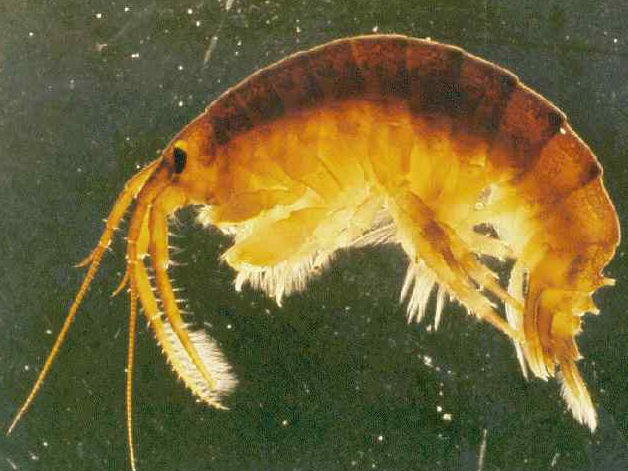Invasive ‘killer shrimps’ in European rivers causing ‘fear’ among native populations they prey upon, study reveals
Mere presence of ‘voracious predator’ species enough to demonstrably impact behaviours of local crustaceans

Invasive “killer shrimps” populating European rivers are not only eating and supplanting the existing shrimp populations, but are effectively changing the species’ behaviours as they seek to avoid being eaten, new research shows.
Native shrimps have found to be expending more energy hiding from the interlopers than they are on their usual behaviour, meaning they are incapable of performing their vital role in river systems.
The invasive Dikerogammarus villosus, also known as the killer shrimp, is a species native to the Black Sea and Caspian Sea drainage basins in eastern Europe, but which over the late 20th century and early 21st century has become endemic across the western part of the continent.
Its arrival comes at the expense of various resident species which are all types of shrimp of the Gammarus genus.
The research team described it as a “voracious predator”, which consumes a vast range of species, with its behaviour subsequently being linked to ecosystem changes and even local extinctions.
The new study, conducted by independent consultant Dr Calum MacNeil and Mark Briffa, professor of animal behaviour at the University of Plymouth, shows for the first time the mere presence of the predator – a so-called non-consumptive effect (NCE) – can reduce the normal effectiveness of its prey.
Existing species expend more energy in simply avoiding the predator in a bid for self-preservation, rather than focussing on core ecosystem tasks such as shredding fallen leaf litter into smaller particles to be consumed by other species.
For the study, one of three different Gammarus species (all commonly found in European rivers) were placed inside a tank.
In half of the tanks, a sample of the invasive “killer shrimp” was also present, but in small cages.
The behaviour of the Gammarus were then assessed over the space of several days, with researchers measuring to what extent they shredded leaves as they would be expected to do in their natural environment.
The results showed after four days each Gammarus species showed lower shredding efficiency in the presence of the “killer shrimp”, compared to the treatments where it was absent.
Dr MacNeil, who has spent more than 20 years studying the species said: “This study demonstrates an unappreciated and indirect impact of a biological invasion by a voracious predator. It shows that the mere presence of an invader can influence resident prey behaviour, in this case the feeding efficiency of naive residents.”
He added: “The Gammarus in our experiment had no prior exposure to its predatory rival, and would not have known to respond to specific alarm cues. However, none of our samples showed any evidence of habituation during the course of the experiment – in fact quite the opposite.”
Professor Briffa said: “Our results indicate that the effect of NCEs on functionally important species may have ramifications, for example, impacting the recovery of stream communities following perturbation.
“A better understanding of the role of NCEs during biological invasions could enhance our ability to predict their progress and, in some cases, the wider ecosystem level ramifications.”
The research is published in the journal Acta Oecologica.
Join our commenting forum
Join thought-provoking conversations, follow other Independent readers and see their replies
Comments
Bookmark popover
Removed from bookmarks